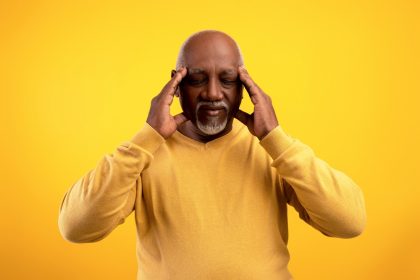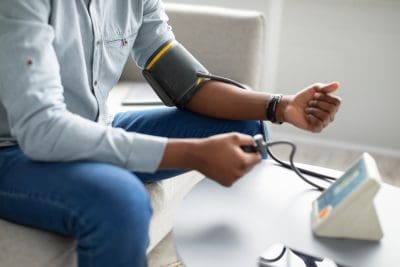When most people think of a stroke, they imagine an immediate and dramatic event — a sudden collapse, slurred speech or paralysis. However, strokes don’t always announce themselves with such obvious symptoms. In many cases, strokes can sneak up on you in ways that are subtle and easily mistaken for something else. It’s crucial to understand these warning signs because strokes — if not treated quickly — can have devastating long-term effects on both your brain and body.
In this article, we’ll explore four subtle ways strokes can catch you off guard and the steps you can take to reduce your risk. While strokes might not always seem like an immediate threat, knowing these warning signs could save your life or the life of someone you love.
1. Sudden confusion or difficulty understanding
One of the first subtle signs of a stroke can be an unexpected difficulty in understanding others or expressing yourself. Imagine this: you’re in a conversation with a friend, and suddenly, it feels as if your brain can’t make sense of their words. This cognitive fog may come on quickly, and many people dismiss it as a momentary lapse or stress.
In reality, this could be the brain’s warning sign of reduced blood flow — a precursor to a stroke. Strokes often affect areas of the brain responsible for language processing, and the confusion can be fleeting. However, ignoring this sign can be dangerous, especially if it’s accompanied by other symptoms.
If you or someone around you experiences sudden confusion or difficulty understanding speech, it’s vital to seek medical attention immediately. Even if the symptoms pass quickly, it’s better to be safe than sorry.
2. Numbness or weakness in one side of the body
Another subtle indicator of a stroke is when one side of your body feels numb or weak, and it’s not always as dramatic as the paralysis we associate with strokes. You might feel a slight tingling in your arm, leg or face, particularly on one side. This numbness might be dismissed as “falling asleep” or attributed to fatigue, but it can be an early warning that something is seriously wrong.
The side of the body affected by numbness depends on which side of the brain the stroke is occurring. For example, a stroke on the left side of the brain affects the right side of the body and vice versa. This imbalance is often overlooked, especially if the numbness is mild or passes after a few minutes.
If you feel sudden, unexplained numbness or weakness in one part of your body — especially if it’s localized to one side — call for emergency medical help immediately. Time is critical when it comes to strokes, and early intervention can prevent severe damage.
3. Vision problems
A stroke can also subtly affect your vision, and this is one of the most overlooked symptoms. You might experience blurred vision, double vision or even sudden vision loss in one or both eyes. These changes can occur quickly and may last for only a few minutes, leading people to believe they’re suffering from fatigue, dehydration or simply needing to adjust their glasses.
Vision problems associated with strokes happen because parts of the brain that control vision are compromised by the lack of blood flow. This can cause partial or complete loss of sight, and because it’s painless, it’s easy to ignore.
Don’t dismiss sudden vision problems. If you notice any rapid changes in your ability to see clearly — whether it’s in one or both eyes — seek immediate medical assistance. These changes can signal that a stroke is happening or about to occur.
4. Severe headaches with no known cause
While many people experience headaches regularly, a stroke-related headache is often described as the “worst headache of your life.” This type of headache comes on suddenly and without any obvious cause. It may also be accompanied by nausea, vomiting or dizziness.
Often, these headaches are mistaken for migraines, especially if the person has a history of chronic headaches. However, when it’s linked to a stroke, the headache is usually more severe and can be a sign of a brain hemorrhage — a dangerous type of stroke that requires immediate attention.
If you or someone you know experiences a sudden, intense headache that doesn’t seem normal or that comes on without any known reason, it’s important to call 911 or go to the emergency room immediately. Even if it turns out not to be stroke-related, such severe pain always warrants medical attention.
Recognizing the subtle signs can save lives
Strokes don’t always come with an obvious warning, but recognizing the subtle ways they can sneak up on you can make all the difference. The quicker you respond to symptoms like confusion, numbness, vision changes or severe headaches, the better the chances of minimizing brain damage and improving recovery.
Awareness is your greatest defense against stroke. Educate yourself and your loved ones on the risks and symptoms so that if a stroke does happen, you’ll be ready to act. Early intervention is key, and the sooner treatment begins, the better the outcome will be. With the right knowledge, you can ensure that you’re not caught off guard by one of the most dangerous silent threats to your health.
Staying vigilant and responding promptly to any unusual changes in your body can truly save lives. Whether it’s you or someone close to you, don’t hesitate to take action when something doesn’t feel right.
This story was created using AI technology.













